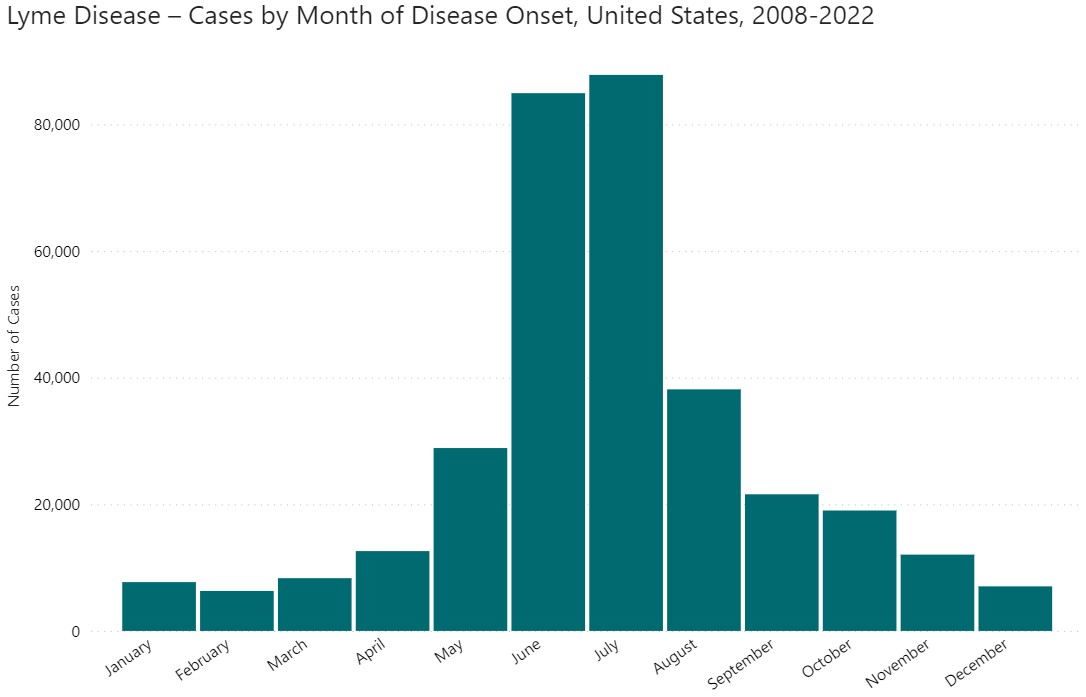Pill to prevent Lyme disease kills ticks before they can infect you

- The last Lyme disease vaccine for people was discontinued in 2002.
- A new pill can kill ticks within 24 hours of biting a person, which is faster than the transmission rate of Lyme disease.
- With the risk of encountering ticks rising due to climate change, there may soon be a need for new preventative measures.
A pill to prevent Lyme disease is showing promise in clinical trials, suggesting there may soon be a new way to avoid contracting it and other nasty tick-borne diseases.
The challenge: If you enjoy hiking, camping, or any other sorts of woodsy activities, you’ve probably been warned to watch out for ticks — tiny bloodsucking parasites that can transmit Lyme disease and other infections to people and animals through typically painless bites.
To protect your pet, you might make sure they get a Lyme disease vaccine and give them a preventative med that quickly kills any ticks that bite them (a tick typically needs to be attached for at least 36-48 hours to transmit the disease).
You don’t have nearly as many ways to protect yourself from tick-borne diseases, though.
There used to be a Lyme disease vaccine for people, but it was discontinued in 2002 due to low demand, and even if you received the shot before then, the protection has likely worn off. While other Lyme disease vaccines are showing promise in trials, none are yet approved.
You can spray your clothing with insect repellent and tuck your pants into your socks, but if a tick bites you, your only hope of avoiding disease is to find and remove the parasite before it can make you sick, and with climate change expanding the regions where ticks can thrive, there is currently a serious need for better options.

What’s new? Tarsus Pharmaceuticals hopes TP-05 — a pill designed to prevent Lyme disease by killing attached ticks before they can spread the disease — is that better option.
The company recently shared the topline data from a phase 2a trial of the drug, named lotilaner, during which 31 healthy volunteers were given either a high dose of TP-05, a low dose, or a placebo. The same day, a sterile, non-pathogenic tick was allowed to bite them.
The researchers then checked how many of the ticks were still alive 24 hours later and discovered that the average survival rate was 95% in the placebo group, but just 3% and 7% in the high and low dose groups, respectively.
“TP-05 may have the potential to provide both rapid and durable protection against multiple tick-borne diseases.”
Linden Hu
To test how long the med might prevent Lyme disease, the volunteers allowed themselves to be bitten again 30 days after the dosing. This time, the average 24-hour survival rates were 91% in the placebo group, 11% in the high dose group, and 9% in the low dose group.
According to Tarsus, the difference in the two treatment arms wasn’t significant and both dosages were well tolerated.
“The tick-kill rates seen at Day 1 and Day 30 suggest that TP-05 may have the potential to provide both rapid and durable protection against multiple tick-borne diseases,” said Linden Hu, the trial’s principal investigator.
If the drug is effective and durable, it could potentially be taken just a couple times per year to prevent Lyme disease, which is highly seasonal, peaking sharply in the summer months when ticks thrive and people head outdoors.

Looking ahead: Larger trials are needed to prove that TP-05 can quickly kill ticks that bite people and to determine exactly how long the protection lasts — meds to prevent Lyme disease in pets typically have to be given every few months.
If Tarsus’ drug does work as hoped, though, it could finally give people a way to protect themselves against Lyme disease and other tick-borne diseases that doesn’t involve coating themselves in insect repellants and hoping they spot any attached ticks in time.
This article was originally published by our sister site, Freethink.





